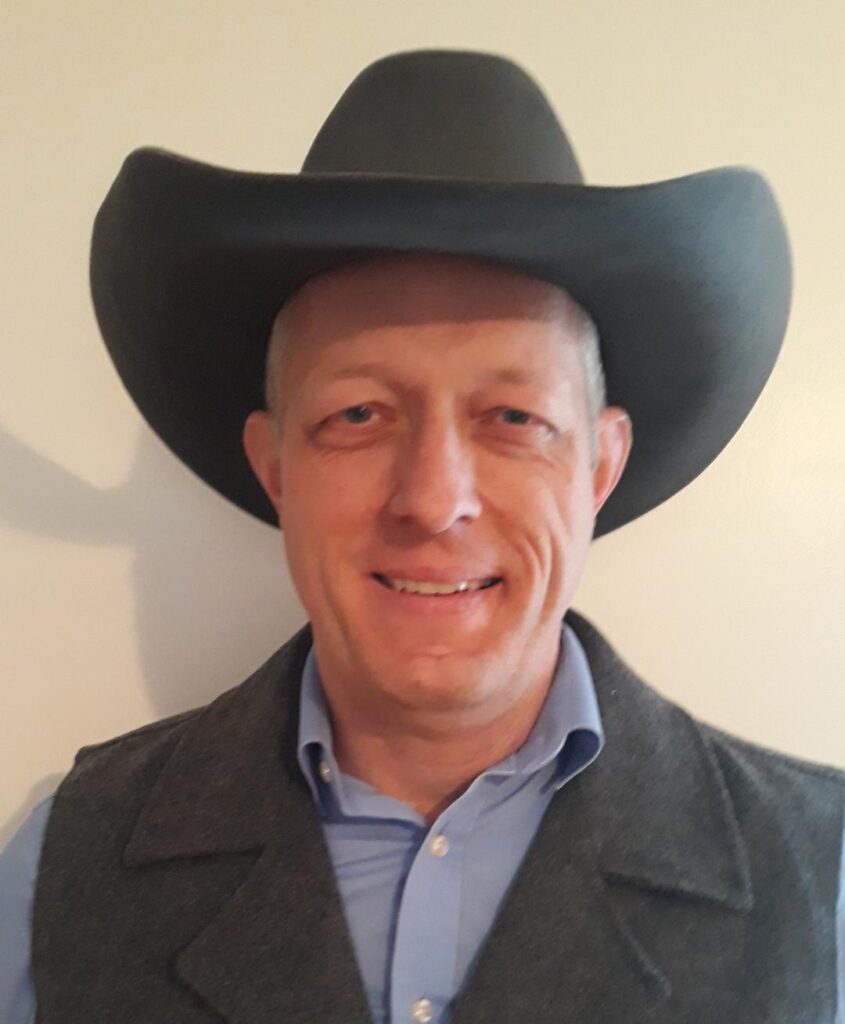New agricultural economist at Texas A&M AgriLife center in San Angelo
Wright will serve production agriculture with market trends, logistics and more

Jeffrey Wright, Ph.D. will bring expertise in marketing, production and economic impacts to the livestock and cotton industries in the West Central and Far West areas of Texas as the new Texas A&M AgriLife Extension Service agricultural economist at the Texas A&M AgriLife Research and Extension Center in San Angelo.
Wright, an assistant professor in the Texas A&M Department of Agricultural Economics who began this new position in January, has already been collaborating on research with AgriLife Extension and Texas A&M AgriLife Research faculty.
“We’re pleased to have someone of Jeff’s academic background and experience as the new agricultural economist in the region,” said Steven Klose, Ph.D., associate head for AgriLife Extension in the Department of Agricultural Economics.
“As the AgriLife Extension agricultural economist, he will be involved in multiple disciplines, making him an important source of information on market trends and economic impacts, as well as production and logistics in the farming industry. This sort of information will be vital in helping make agricultural operations be more efficient, cost-effective and profitable.”
Agricultural economics expertise valued by producers, industry
Wright said West Texas is a unique region producing a diverse mix of agricultural products, and he is looking forward to serving its residents and the agency.
“As an economist, I will be working with ranchers and farmers to identify the best production and marketing practices,” he said. “I will also assist other specialists at the center by evaluating the economic impacts of their research.”
Bill Thompson, executive director of the Southern Rolling Plains Cotton Growers Association, said having an agricultural economist who understands the cotton industry is particularly important for the region.
“Cotton production is second only to beef cattle production in this region, and Dr. Wright has experience with both,” Thompson said. “His background and the work he’s done on cotton are well-suited to this area. He knows a great deal about the movement of cotton and has done transportation modeling for the Texas cotton industry, especially on moving cotton to various ports and other sites in and outside the state for export.”
Thompson said Wright has a firm grasp on how economic theory applies to the Texas cotton industry, as well as the needs of those involved in that industry.
Robert Pritz, regional program leader for agriculture and natural resources for AgriLife Extension’s West Region, which includes the agency’s Far West and West Central districts, said having Wright in the position of agricultural economist is vital to that region.
“We have cattle, cotton, sheep, goats and other agricultural products, and producers will be able to benefit from Jeff’s expertise on the economics related to those products,” Pritz said. “Producers often work with thin margins for their profitability, so having someone with Jeff’s knowledge of markets, agricultural policy, the economic benefits of technology and other topics can help them make more informed decisions regarding their operations.”
Papers, presentations and past experience
Wright earned his doctorate in agricultural economics from Texas A&M, his master’s in economics and statistics from Utah State University and his bachelor’s in philosophy from California State University in Long Beach.
Wright’s recent paper, “A Tournament Approach to Price Discovery in the U.S. Cattle Market,” was published in the Journal of Agricultural and Applied Economics. He is currently working on a paper regarding a joint products model of the Texas cotton supply chain. He is also studying the effects of plastic contamination on cotton producers, commodity price trends and market risk management.
Wright has made numerous presentations and been awarded grants and contracts related to the factors leading to plastic contamination of cotton, and the impact of changing supply and demand conditions on the flow and value of Texas cottonseed.
Before coming to Texas A&M, Wright was a research assistant at Utah State University in Logan, where he performed academic research. Prior to that, he was a lab assistant at California State University, Long Beach, where he assisted in setting up biology labs for student experiments.


